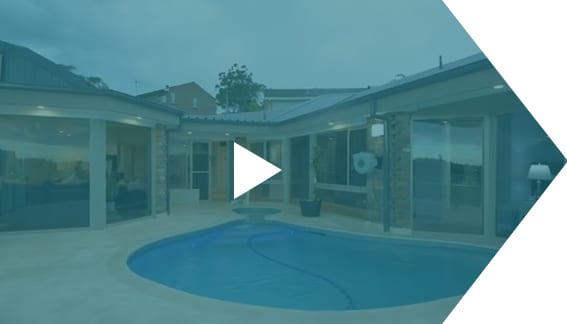Home renovations are an exciting journey, allowing you to personalise your space and add value to your property. However, it’s not as simple as picking up a hammer and getting to work. In Australia, building regulations are essential to any renovation project, ensuring that your home is safe, legal, and compliant with the law. Before diving into your next project, it’s vital to understand these regulations to avoid potential legal or financial complications.
What Are Building Regulations?
Building regulations are a set of legally enforceable standards established to ensure that construction work is safe, sustainable, and suitable for human habitation. These regulations cover various aspects of construction, including structural integrity, fire safety, plumbing, electrical work, and energy efficiency. For Australian homeowners, complying with these rules is not optional – it’s mandatory.
Why Are Building Regulations Important?
Building regulations exist to:
- Ensure Safety: They ensure that structures are safe for occupants and the surrounding community.
- Protect Property Value: Compliance increases the value of your property and prevents costly future repairs.
- Prevent Legal Issues: Renovating without adhering to regulations can result in fines or orders to undo unauthorised work.
- Support Sustainability: Modern regulations promote energy efficiency and environmental responsibility.
Key Areas Covered by Building Regulations in Australia
1. Planning Permits
Before beginning your renovation, check whether you need a planning permit. Local councils oversee planning permits, which ensure your project aligns with zoning laws and community standards. Examples include:
- Altering your home’s façade
- Building extensions or adding another floor
- Changing the use of a building
Understanding zoning laws is crucial as it impacts where you can build, the height restrictions, and how close your structure can be to your property boundaries. Some councils also require community consultation for significant changes.
2. Building Permits
A building permit differs from a planning permit and focuses on construction compliance. This approval ensures that your renovation meets the Building Code of Australia (BCA). Work that typically requires a building permit includes:
- Structural alterations
- Plumbing or electrical work
- Adding new rooms or extensions
It is essential to note that failing to secure a building permit can lead to significant penalties, legal complications, and even the need to demolish non-compliant structures.
3. Structural Integrity
Structural safety is a top priority for building regulations. Your renovation plans must demonstrate that the structure can withstand physical loads and stresses. This includes:
- Foundations that can support additional weight
- Proper bracing and support for walls
- Safe installation of beams and joists
Engaging a structural engineer early in the project can help identify potential issues and ensure your design meets safety standards. They can also provide the necessary certifications for your building permit application.
4. Fire Safety
Fire safety measures are non-negotiable in Australian building regulations. These include:
- Installing fire-rated walls and ceilings
- Ensuring proper egress routes, such as windows and doors
- Installing smoke detectors in compliance with Australian standards
Depending on your location, you may also need to consider bushfire attack level (BAL) assessments and incorporate specific materials or designs to mitigate fire risks in high-risk areas.
5. Electrical and Plumbing Standards
Licensed professionals must carry out all electrical and plumbing work. Key considerations include:
- Electrical systems that meet safety standards
- Proper installation of pipes and drains
- Hot water systems that comply with energy efficiency rules
In addition to ensuring compliance, hiring qualified tradespeople helps protect your warranty rights and reduces the likelihood of future malfunctions or safety hazards.
6. Energy Efficiency
Australia’s building regulations emphasise energy efficiency to reduce carbon footprints. This covers:
- Insulation requirements for walls, roofs, and floors
- Installation of energy-efficient windows and doors
- Use of renewable energy sources, such as solar panels
Consider conducting an energy audit before your renovation to identify areas where improvements can have the greatest impact. Additionally, using sustainable materials can further enhance your home’s energy performance
7. Heritage and Conservation Restrictions
Additional regulations may apply if your property is located in a heritage zone or has historical significance. These often restrict:
- Changes to the building’s exterior
- Demolition of existing structures
- Use of modern materials that don’t match the original design
Consulting a heritage architect can help you navigate these restrictions and find creative ways to modernise your home while preserving its historical value.
8. Health and Accessibility Standards
Building regulations ensure that renovations meet health and accessibility standards, including:
- Adequate ventilation in living spaces
- Installation of ramps and railings where needed
- Compliance with standards for bathrooms and kitchens
Incorporating universal design principles for multi-generational households or ageing residents can make your home more accessible and future-proof.
How to Ensure Compliance with Building Regulations
1. Engage Professionals
Hiring licensed builders, architects, and surveyors ensures your renovation meets all required standards. These professionals can:
- Help secure necessary permits
- Prepare compliant plans and designs
- Carry out work to legal specifications
Always check the credentials of any professional you hire and verify their registration with relevant industry bodies.
2. Consult Local Councils
Every local council has specific rules and processes for building approvals. Contact your local authority to:
- Verify zoning requirements
- Obtain guidance on permits
- Understand timelines and fees
Regular communication with your council can prevent delays and misunderstandings during your renovation.
3. Follow the Building Code of Australia (BCA)
The BCA provides detailed guidelines on building standards. Familiarise yourself with its requirements or ensure your builder adheres to them.
4. Document Everything
Maintain a record of all permits, inspections, and approvals. This documentation is invaluable if you sell your property or face disputes.
5. Conduct Regular Inspections
Regular site inspections during construction ensure the work complies with approved plans and regulations. Engaging a building inspector can provide peace of mind and catch issues early.
Consequences of Non-Compliance
Failing to adhere to building regulations can lead to:
- Fines and Penalties: Local councils can impose significant fines for unauthorised work.
- Demolition Orders: Non-compliant structures may need to be dismantled.
- Insurance Issues: Home insurance claims may be denied for unapproved renovations.
- Lower Property Value: Non-compliance can deter potential buyers and reduce your property’s market value.
FAQs
Q. Do all home renovations require a building permit?
Not all renovations require a building permit. Minor works like painting or installing new fixtures may not need approval. However, structural changes, electrical work, and plumbing typically do.
Q. How do I know if my property is in a heritage zone?
Check with your local council or use online property search tools to determine if your property is in a heritage zone.
Q. Can I handle small renovations without a licensed builder?
Some minor tasks can be DIY, but licensed professionals must carry out structural, electrical, and plumbing work to meet building regulations.
Q. What is the cost of obtaining building permits?
Permit costs vary depending on your local council and the scope of your project. Fees typically include application, inspection, and certification charges.
Q. What happens if my renovation plans are rejected?
If your plans don’t meet regulations, you may need to revise and resubmit them. Engage a professional to address the issues and increase your chances of approval
Conclusion
Understanding and adhering to building regulations is essential for any successful home renovation project in Australia. These rules ensure your renovation is safe and compliant and enhance your property’s value. By engaging licensed professionals, consulting your local council, and staying informed about the requirements, you can avoid costly mistakes and enjoy the transformation of your home with peace of mind. Whether you’re planning a small upgrade or a major overhaul, make building regulations a priority for a smoother renovation journey.
Call us today on 02 97363344 or contact us online for a free consultation.












